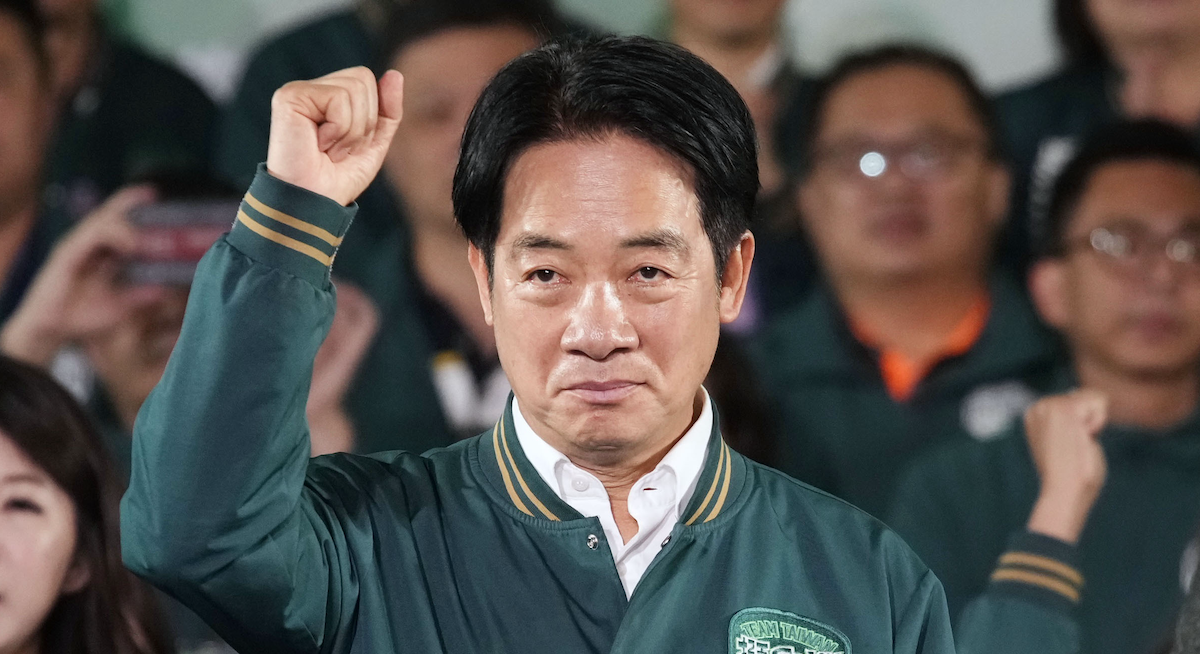Taiwan's Vice President Lai Ching-te, who heads the ruling Democratic Progressive Party, raises his fist after winning the presidential election in Taipei on Jan. 13, 2024.
Taiwan, one of the freest democracies in Asia, went to the polls on Saturday for a highly anticipated election with implications for both cross-strait and US-China relations.
As we told you last week, Taiwan’s presidential campaign ended up being a close race between independence-leaning candidate William Lai Ching-te of the ruling Democratic Progressive Party, or DPP, and Hou You-ih of the Kuomintang, aka KMT, who favors closer relations with China.
On the day, Lai came out on top with 40% of the vote, beating Hou by almost 7 percentage points. But Lai’s DPP didn’t have the same success: The party lost control in the legislature, winning 51 of 113 seats, while the KMT netted 52, and the third party, the TPP, won eight.
The defeat of China’s preferred candidate is likely to ruffle some feathers back in Beijing. China sees Taiwan as a breakaway territory and is determined to reunify, by force if necessary, but so far Lai’s remarks have not been escalatory. Also, the DPP’s loss of the legislative majority means Beijing isn’t in the worst-case scenario and might preclude the most aggressive responses.
“Chinese initial reactions are unlikely to be escalatory,” says Eurasia Group expert Ava Shen, “given that Lai's remarks on cross-strait relations after the elections were fairly measured.”
While the DPP losing seats in the legislature, Shen says, “will make it more difficult for Lai to push his domestic agenda through the legislature,” he still has room to maneuver when it comes to foreign policy, cross-strait relations, and defense.
So all eyes now turn to Lai to see how much independence rhetoric he uses in the days and weeks ahead – talk that could help determine China’s response. Any real moves against Taiwan, which is backed by Washington, could lead to a wider conflict.
